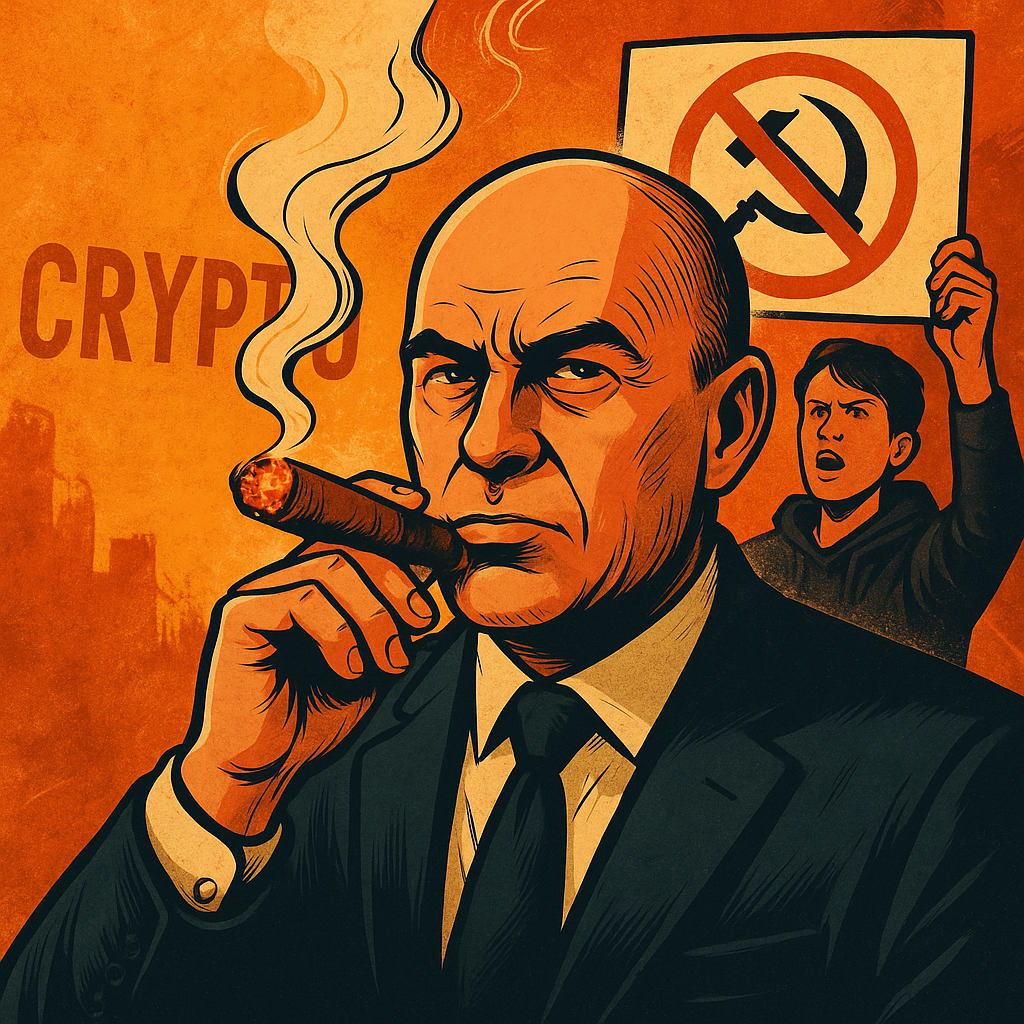Christopher Perkins, the president of blockchain investment firm CoinFund, has strongly criticized the Bank for International Settlements (BIS) for its recent recommendations aimed at isolating cryptocurrencies from traditional finance.
In a powerful statement shared on April 19, Perkins labeled the BIS’s April 15 report as “uninformed and dangerous,” suggesting the institution’s views stem from “a mix of fear, arrogance, or ignorance.” He warned that the BIS’s call for a “containment approach” to crypto could severely backfire.
“Crypto is not communism. It’s the new internet—offering open access to financial services for anyone, anywhere,” Perkins declared.
🔒 BIS Report Sparks Industry Backlash
The BIS report, titled “Cryptocurrencies and Decentralized Finance: Functions and Financial Stability Implications,” recommends restricting crypto’s integration into traditional finance (TradFi). According to BIS, DeFi and stablecoins could pose macroeconomic threats, especially in vulnerable nations.
But Perkins wasn’t having it. He argued that DeFi improves on traditional finance, not worsens it. In his view, TradFi suffers from opacity, limited access, and rigidity, while crypto markets operate in real-time, 24/7 — exposing legacy systems to new liquidity risks if isolated.
“If implemented, these policies will cause—not prevent—the very systemic risks regulators fear,” he warned.
🧠 The Real Danger? Misunderstanding Innovation
The BIS raised concerns about the anonymity of DeFi developers, which Perkins countered as irrelevant. He pointed out that private firms rarely disclose their dev teams, and yet those firms aren’t facing similar scrutiny.
Perkins also took aim at BIS’s claim that USD stablecoins might destabilize economies in developing nations like Venezuela or Zimbabwe.
“If stablecoins are improving lives in struggling economies, isn’t that a positive outcome?” he questioned.
📢 Industry Leaders Join the Chorus
Perkins wasn’t the only voice of dissent. Christian Catalini, co-founder of Lightspark, also criticized the BIS report, comparing their outdated approach to:
“Writing parking rules for a fleet of self-driving drones — earnest, but two tech revolutions behind.”
🔍 Bottom Line
As governments and institutions wrestle with regulating crypto, industry leaders are demanding better-informed approaches. The BIS’s hardline stance may not only hinder progress—it could make the global financial system more fragile.
Crypto isn’t a threat. It’s an opportunity. And the debate has only just begun.

